That neo-Nazi movements, especially the Pravy Sektor and Swoboda, played a crucial part in Ukraine’s Maidan “revolution,” is not disputed by even the most fervent cold warriors and associated spin doctors, though it is downplayed as an insignificant side issue and dutifully ignored by Western media.
The advocates of Ukraine’s incorporation into EU and NATO — a move which would complete the encirclement of Russia — clearly see the neo-Nazis not as a danger to democracy, but as an asset to stamp out dissent and eliminate sympathizers of Russia.
Logically the National Guard, largely comprised of Pravy Sektor militants, “punitive battalions,” and militias like Azov, Airdar, Donbass, General Kulchytsky, were spearheading the ATO (anti-terrorist operation) against the breakaway provinces of Donetsk and Lunansk. They are the much lauded heroic fighters against Russian hegemony, who fight and die for the unity of Ukraine.
Yet various disturbing details about the mindset and the conduct of the neo-Nazi militias could not be concealed, as social media sites, the blogosphere, and eastern media channels (which are forbidden in the Ukraine but still available in most of Western Europe) were full of reports about proudly displayed nazi regalia (wolfsangel, swastika, SS badges) and clearly documented atrocities against the civilian population.
Even the US dominated NGO “Amnesty International,” which is normally totally synchronized with Western policies, couldn’t avoid to admit, that the Aidar battalion had committed war crimes including abductions, executions, unlawful detention, torture, theft, robbery, and extortion (including demanding ransom).
That neo-Nazis from all over Europe (Sweden, Germany, Poland) descend on the Ukraine to join the militias is also not easy to explain or discount. The existence of a few Israeli ex-IDF soldiers (Delta, Blue Helmets) in the militias though gives the story an interesting twist that few media outlets dared to miss.
Lately Western media channels have resorted to a new tactic for restoring the purity of the Maidan “revolution” and for squashing any doubts about the legitimacy of the new rulers in Kiev. They point out that Nazis are present on all sites and that the neo-Nazis of the enemy (Putin’s Russia) are even more despicable than “our” Nazis in Ukraine.
Konstantin Malofeev, a Russian oligarch (founder of the equity company Marshall Capital), who bankrolls various social and charity organizations, and is therefore described as Russia’s George Soros, is allegedly also funding the pro-Russian separatists in Donetsk and Luhansk. Alexander Borodai of the DPR (Donetsk People’s Republic) and former military leader Igor Strelkov (Igor Girkin) have both worked for Malofeev. Malofeev is said to have close connections to President Putin’s inner circle, including Sergei Ivanov, Putin’s chief of staff, as well as Ivanov’s son.
Konstantin Malofeev describes himself as an “orthodox nationalist,” and he states, that “Russia is the center of salvation for conservative, Christian, European values.”
Recently Malofeev sponsored a meeting of European and Russian nationalist politicians and academics in Vienna. The conference discussed ways to rid Europe of the “gay lobby,” and Russian philosopher Aleksandr Dugin was a keynote speaker. Aymeric Chauprade, a newly elected member of the European Parliament from France’s FN (Front National), also attended the event. According to Chauprade: “Patriots around the world, as committed to the independence of nations as they are to the foundations of our civilization, turn their eyes at this time towards Moscow.”
Many on the European far-right see Russia’s anti-gay crackdown as a key part of their resistance to the EU and neoliberalism in Europe.
In 2013 the Russian Duma passed a LGBT propaganda law “for the Purpose of Protecting Children from Information Advocating for a Denial of Traditional Family Values.” The law was criticized by Western media as “anti-gay,” but supported by most of the Russian population.
For Russians, the Austrian bearded drag queen Conchita Wurst (Tom Neuwirth), whose song won the 2014 Eurovision contest, confirmed what many already suspected: Europe is on a slippery slope toward cultural depravity. Even high-ranking Russian officials, including Deputy Prime Minister Dmitry Rogozin, denounced the drag queen for embodying the loose morals that European integration entails.
In the renewed culture war between Western liberalism and Eastern traditional conservatism for which Conchita Wurst has become a symbol, Europe’s far-right parties have stood with the Russians. In its party program, Austria’s FPOe defines family as “a partnership between a man and a woman with common children.”
As an aside note: Joerg Haider, the famous late leader of this party, was not only accused to have received big kickbacks from Middle Eastern dictators and from weapons producers, he was also rumored to be homosexual, and a court ruling from 2009 threatens a fine of up to 100,000 Euros for anybody “who claims or distributes the claim, that Haider was homosexual and/or bisexual and/or that he has had a male lover.”
Bigots and hypocrites of the world, unite.
The courtship between European far-right parties and Russia has been going on since 2008, when Eastern Europe’s far right supported Ossetia and Abkhazia in the Russo-Georgian war. In May 2013, leaders of Jobbik, a Hungarian far-right party, met with Russian Duma leaders and academics at Moscow State University. The Bulgarian Ataka party repeatedly supported Putin and Russian foreign policy. In 2012, Ataka’s leader, Volen Siderov, traveled to Moscow to celebrate Putin’s sixtieth birthday and to voice admiration for the Russian president’s strong leadership. After Russia’s annexation of Crimea, Siderov threatened to withdraw his party’s support from the coalition government if it supported further sanctions against Russia.
Marine Le Pen, de facto spokesman for the European far right, has hailed Russia’s president as a true patriot and defender of European values. After Le Pen praised Russia’s policies toward the Ukraine, Putin invited her along with fellow representatives of the FN (Front National) and other European far-right parties to observe the March referendum on Crimea’s accession to Russia. When she endorsed the Crimean referendum as legitimate, others on the European far right, including Austria’s FPOe and Britain’s UKIP, followed suit. Russian media and bloggers, meanwhile, embraced Le Pen’s endorsement. One blogger started a “Merci Marine!” Twitter campaign. After the European parliamentary elections on May 25th, in which Le Pen’s party took the largest share of votes in France, Russia’s president returned the compliment by publicly praising Le Pen’s success.
The relationship between Russia and Western Europe’s far right may be a marriage of convenience, but it also shows signs of genuine affection. Closer ties with rising political parties in the EU will give Putin more leverage against NATO. For its part, the European right sees the Russian leader as a staunch defender of national sovereignty and conservative social values who has challenged US influence and the idea of a Europe, controlled from Brussels, in a way that mirrors their own convictions.
For the Euroskeptic far right, endorsing the Crimean referendum was a carom shot that allowed them to reframe their defiance of the EU and the EU-Bureaucrates growing influence over national politics, but it was also an endorsement of Putin’s nationalism and social conservatism. Le Pen derided the EU as an “anti-democratic monster” while in the same breath exalting Putin for doing “what is good for Russia and the Russians.” Meanwhile, the leader of Britain’s UKIP, Nigel Farage, sees Putin as a brilliant strategist who can outwit the West. When asked which world leader he admired the most, Farage’s answer was unhesitating: “Putin.”
Europe’s far-right parties have also been increasingly critical of the Obama administration’s campaign to impose economic sanctions on Russia. Leading the charge, Le Pen sees the sanctions as US meddling in European affairs. Echoing the Russian view of Europe, Marine Le Pen’s niece, French parliamentarian Marion Maréchal-Le Pen, called the EU “the poodle of the United States.” The already mentioned Aymeric Chauprade, called Putin: “The hope of the world against new totalitarianism.”
Putin has even conservative admirers in the USA. Pat Buchanan, an unwavering voice in the culture wars of the last decades, wrote in an article with the title: “Is Putin One of Us?,” that while a “de-Christianized” US has been embracing “homosexual marriage, pornography, promiscuity, and the whole panoply of Hollywood values,” Putin has stood up for the old-time virtues. Buchanan suggests that a new global conservative bloc may be, and certainly should be, forming: “Though many Americans are still caught up in a Cold War paradigm, the 21st century struggle may be horizontal, with conservatives and traditionalists in every country arrayed against the militant secularism of a multicultural and transnational elite.”
It is only fair to ask, if Vladimir Putin in his own private life exemplifies the traditional family values which he and his sympathizers hold in such high regard. He is apparently not homosexual but his family life seems not to be perfect, at least not according to common sense standards. In April the Kremlin confirmed that the divorce of President Putin from his wife of 30 years, Lyudmila, had been finalized.
Lyudmila Putin, who is known to dislike publicity, explained that flying was difficult for her and Putin was “completely drowned in work.” The divorce was “civilized” and the couple would “always remain close,” she added.
Alina Kabaeva was born in 1983, that same year that Vladimir Putin married Ludmilla. She is one of the most decorated gymnasts with two Olympic medals, 14 world championship medals, and 25 European championship medals. Alina Kabaeva is for sure an attractive woman, proven by the fact that she appeared on the cover of the Russian Vogue and in various other magazines. Since 2007 she is a State Duma deputy from the Party of United Russia. In 2008 a number of sources reported that she is the mistress of Putin and when she gave birth to her son Dmitri one year later it was assumed that Putin is the father. Considering Putin’s known fixation on physical fitness Alina is undoubtedly the perfect match for him.
If all this is true, Putin would not be the only famous man to be engaged with a woman who could be his daughter. Rupert Murdoch war married to Wendy Deng, Sumner Redstone to Paula Fortunate, George Soros to Tamiko Bolton, Nelson Mandela to Graca Machel.
It maybe is too harsh and acrimonious to accuse Putin of bigotry under the before mentioned headline “Bigots of the world, unite,” this is a private matter after all, but it is another prove that the driving force in politics, culture, social relations, and human history in general is sex.
Plain and simple.
Afterthoughts: I wrote this post, knowingly stepping on all toes, embarrassing and annoying representatives from all sites. Ideological fault lines crisscross the political landscape, with the biggest fault line being the dichotomy between dogmatism (bigotry, sectarianism, racism, bias) versus open-mindedness (pragmatism, impartiality, tolerance, fairness).
When the political picture is in fact a movie with countless fast moving parts, unexpected developments, and constantly changing alliances (including the mentioned strange bedfellows), dogmatism could be an impediment in choosing the right strategy and making the right decision at the right time.
One can of course decry open-minded and tolerant people as unprincipled and spineless. It is all a matter of definition.
Let our heads spin.
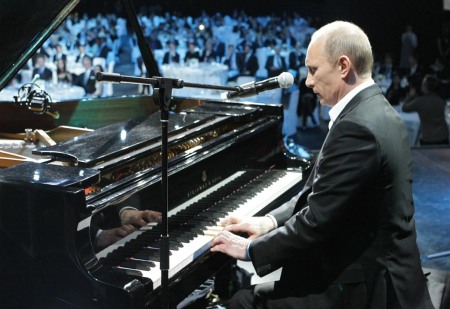
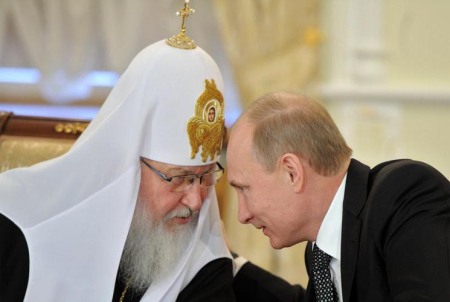
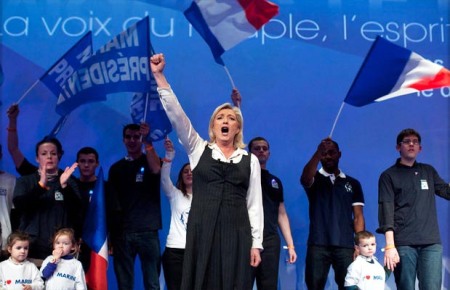
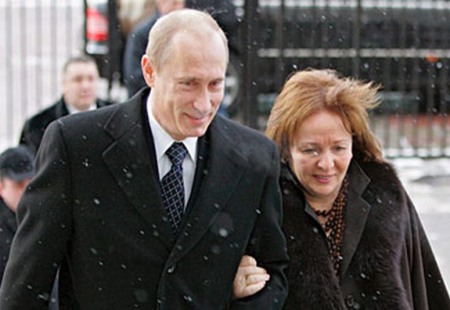
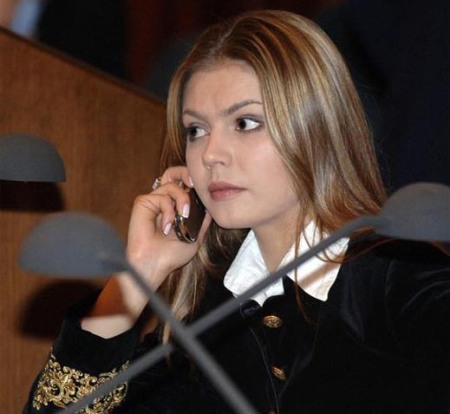
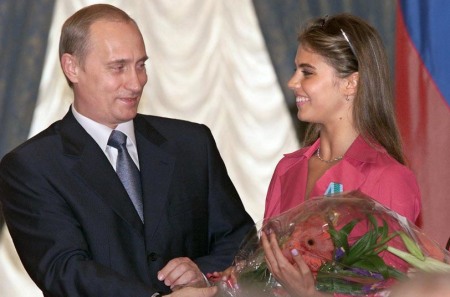
Keine Kommentare:
Kommentar veröffentlichen